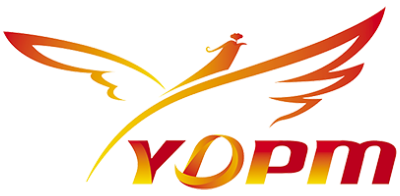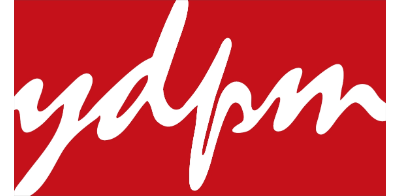In the ever-evolving world of machine tool manufacturing, optimizing efficiency and sustainability are essential goals. Manufacturers continuously seek innovative methods to enhance machining processes and reduce environmental impact. One such advancement is the adoption of Minimum Quantity Lubrication (MQL). MQL is a cutting-edge lubrication technique that offers numerous benefits over traditional flood coolant systems. In this article, we will explore the concept of MQL and Yida has implemented it to our proudcts.
Understanding Minimum Quantity Lubrication (MQL):
Minimum Quantity Lubrication, also known as micro-lubrication or near-dry machining, is a technique that employs a precise quantity of lubricant in the form of an aerosol or a fine mist. Unlike conventional flood coolant systems, which drench the workpiece and tool in a large volume of coolant, MQL focuses on delivering a small quantity of lubricant directly to the cutting zone. This targeted approach minimizes waste and maximizes efficiency.
The Advantages of MQL in Machine Tool Manufacturing:
1. Improved Cutting Performance: MQL provides efficient cooling and lubrication precisely at the cutting zone, reducing friction and heat generated during machining. This results in improved cutting performance, including extended tool life, reduced tool wear, and enhanced surface finish. By minimizing friction, MQL also reduces the risk of thermal damage to the workpiece.
2. Enhanced Machining Efficiency: With MQL, manufacturers can significantly increase machining speeds and feed rates, leading to higher productivity and reduced cycle times. The reduced friction and improved chip evacuation also contribute to more efficient operations. Additionally, MQL reduces the need for downtime associated with coolant changes, resulting in increased machine utilization.
3. Cost Savings: MQL utilizes minimal amounts of lubricant compared to traditional flood coolant systems, resulting in reduced lubricant consumption and associated costs. The precise application of lubricant directly to the cutting zone minimizes wastage and eliminates the need for large-scale coolant systems. Furthermore, MQL eliminates the costs associated with coolant filtration, disposal, and maintenance.
4. Environmental Benefits: The reduced volume of lubricant used in MQL translates into less waste generation and lower environmental impact. MQL minimizes the release of hazardous substances into the atmosphere, making it a more sustainable lubrication option. Additionally, the elimination of large-scale coolant systems reduces the consumption of water and energy, contributing to environmental conservation.
5. Cleaner Working Environment: Unlike flood coolant systems that create a messy working environment due to coolant splashes and mists, MQL significantly reduces the amount of lubricant in the air. This leads to a cleaner workplace, improved operator safety, and reduced health risks associated with exposure to coolant mists. The absence of coolant mist also improves visibility during machining operations.
How Yida Implements MQL in Machine Tool Manufacturing:
To implement MQL effectively, a few key considerations should be taken into account:
1. Lubricant Selection: Careful selection of lubricants is crucial to ensure optimal performance. The lubricant should possess the necessary characteristics, such as good lubricity, thermal stability, and compatibility with the machining materials.
2. Equipment Modification: Machine tools may require certain modifications to accommodate MQL systems. This could involve the installation of atomizers, nozzles, and regulators to precisely deliver the lubricant to the cutting zone. The selection and placement of these components play a vital role in ensuring efficient lubricant distribution.
3. Process Optimization: Adjustments to cutting parameters, such as cutting speeds, feeds, and depth of cut, may be necessary to maximize the benefits of MQL. Additionally, tooling selection and design optimization can further improve overall machining efficiency. Collaboration with tool manufacturers and lubricant suppliers can provide valuable insights for process optimization.
Conclusion:
Minimum Quantity Lubrication (MQL) represents a game-changing advancement in machine tool manufacturing, offering significant advantages over traditional coolant systems. By providing targeted lubrication and cooling, MQL enhances cutting performance, increases machining efficiency, reduces costs, and contributes to a cleaner and more sustainable working environment. Yida recognizes MQL as a promising technology with the potential to revolutionize the industry and we continue to seek innovative solutions to improve our users manufacturing processes. We believe embracing MQL can lead to enhanced productivity, reduced environmental impact, and a more efficient and profitable machine tool manufacturing sector.
Understanding Minimum Quantity Lubrication (MQL):
Minimum Quantity Lubrication, also known as micro-lubrication or near-dry machining, is a technique that employs a precise quantity of lubricant in the form of an aerosol or a fine mist. Unlike conventional flood coolant systems, which drench the workpiece and tool in a large volume of coolant, MQL focuses on delivering a small quantity of lubricant directly to the cutting zone. This targeted approach minimizes waste and maximizes efficiency.
The Advantages of MQL in Machine Tool Manufacturing:
1. Improved Cutting Performance: MQL provides efficient cooling and lubrication precisely at the cutting zone, reducing friction and heat generated during machining. This results in improved cutting performance, including extended tool life, reduced tool wear, and enhanced surface finish. By minimizing friction, MQL also reduces the risk of thermal damage to the workpiece.
2. Enhanced Machining Efficiency: With MQL, manufacturers can significantly increase machining speeds and feed rates, leading to higher productivity and reduced cycle times. The reduced friction and improved chip evacuation also contribute to more efficient operations. Additionally, MQL reduces the need for downtime associated with coolant changes, resulting in increased machine utilization.
3. Cost Savings: MQL utilizes minimal amounts of lubricant compared to traditional flood coolant systems, resulting in reduced lubricant consumption and associated costs. The precise application of lubricant directly to the cutting zone minimizes wastage and eliminates the need for large-scale coolant systems. Furthermore, MQL eliminates the costs associated with coolant filtration, disposal, and maintenance.
4. Environmental Benefits: The reduced volume of lubricant used in MQL translates into less waste generation and lower environmental impact. MQL minimizes the release of hazardous substances into the atmosphere, making it a more sustainable lubrication option. Additionally, the elimination of large-scale coolant systems reduces the consumption of water and energy, contributing to environmental conservation.
5. Cleaner Working Environment: Unlike flood coolant systems that create a messy working environment due to coolant splashes and mists, MQL significantly reduces the amount of lubricant in the air. This leads to a cleaner workplace, improved operator safety, and reduced health risks associated with exposure to coolant mists. The absence of coolant mist also improves visibility during machining operations.
How Yida Implements MQL in Machine Tool Manufacturing:
To implement MQL effectively, a few key considerations should be taken into account:
1. Lubricant Selection: Careful selection of lubricants is crucial to ensure optimal performance. The lubricant should possess the necessary characteristics, such as good lubricity, thermal stability, and compatibility with the machining materials.
2. Equipment Modification: Machine tools may require certain modifications to accommodate MQL systems. This could involve the installation of atomizers, nozzles, and regulators to precisely deliver the lubricant to the cutting zone. The selection and placement of these components play a vital role in ensuring efficient lubricant distribution.
3. Process Optimization: Adjustments to cutting parameters, such as cutting speeds, feeds, and depth of cut, may be necessary to maximize the benefits of MQL. Additionally, tooling selection and design optimization can further improve overall machining efficiency. Collaboration with tool manufacturers and lubricant suppliers can provide valuable insights for process optimization.
Conclusion:
Minimum Quantity Lubrication (MQL) represents a game-changing advancement in machine tool manufacturing, offering significant advantages over traditional coolant systems. By providing targeted lubrication and cooling, MQL enhances cutting performance, increases machining efficiency, reduces costs, and contributes to a cleaner and more sustainable working environment. Yida recognizes MQL as a promising technology with the potential to revolutionize the industry and we continue to seek innovative solutions to improve our users manufacturing processes. We believe embracing MQL can lead to enhanced productivity, reduced environmental impact, and a more efficient and profitable machine tool manufacturing sector.




